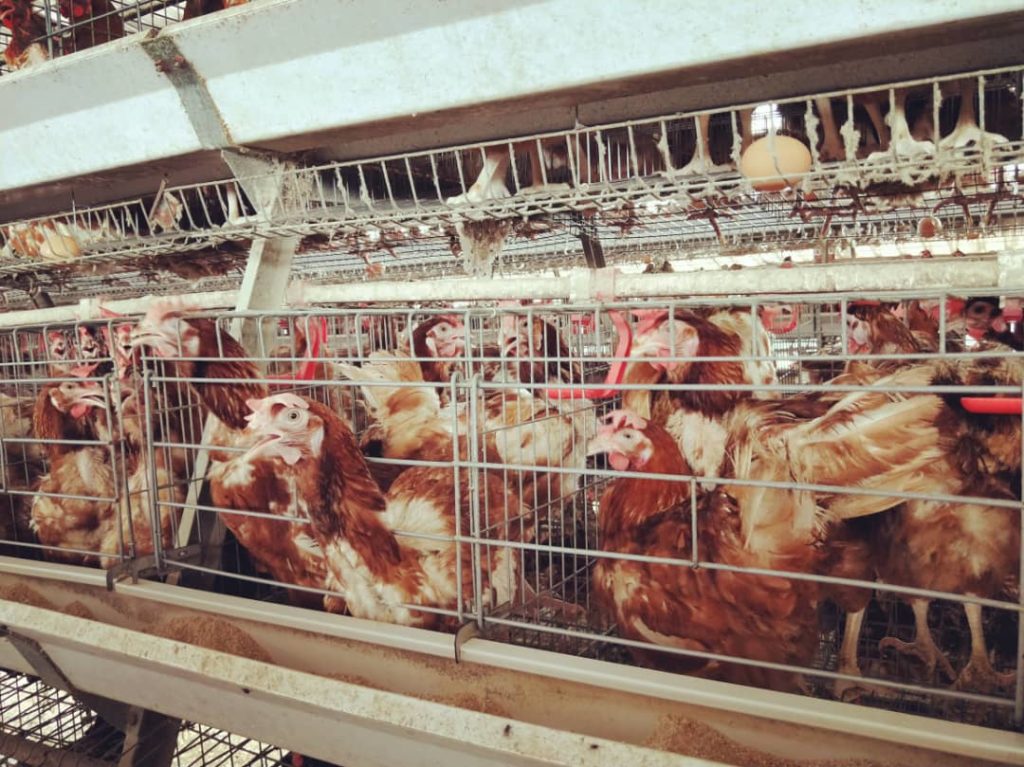
By Prince Okafor
In March 2020, the Central Bank of Nigeria, CBN, put the poultry industry net worth at N1.6 trillion, with a total of 25 per cent contribution to the agricultural sector Gross Domestic Product, GDP.
The apex bank also gave a population census of the total chickens in Nigeria at about 165 million, which produces approximately 650,000 Metric Tonnes, MT, of eggs.
The World Bank has projected to hit 400 million by 2050. Reports available shows that 280 million of this population are projected to live in the cities, significantly increasing the demand for poultry products.
However, Godwin Emefiele, CBN Governor, in an interview, also noted that over 1.2 million MT of poultry meat is smuggled into Nigeria from Benin Republic.
The CBN governor also lamented that the demand situation is estimated at over 200 million birds, while the demand for eggs is about 790,000MT, leaving a huge demand gap which, unfortunately, is met through smuggling.
Sequel to this development, the outbreak of Coronavirus (COVID-19) pandemic, has further denied the Poultry industry its drive to meet the target.
In a comparative data, while countries like Libya, South Africa, and Congo per capita consumption of chicken stood at 39kg, 36kg and 23kg respectively, Nigeria’s consumption stood at 2.5kg.
Per capita consumption indicates the average consumption by a person belong to a particular nation calculated from the known total consumption of that nation and the total population
The per capita consumption of eggs in Nigeria is 60 eggs per annum compared to 250 to 300 eggs per annum in most advanced countries.
Poultry farmers bleed
Meanwhile, Poultry owners lamented that despite their losses, the prices of feeds for their livestock has subsequently skyrocketed due to the rise in Foreign Exchange, FOREX, denying most of them the ability to even account for their capital.
iBrandTV gathered that most of the feed additives, utilised by poultry owner which includes, mentholine, lysine, DCP, amongst others are all imported.
Also, most of the drugs used also for protecting the birds are also been imported.
iBrandTV gathered that the lack of synergy between federal and state governments has caused serious logistic and distribution challenges.
Most farmers lost between 35 and 40 per cent of their resources because sometimes you cannot sell but they keep producing.
Making a case for the development, an integrated Agricultural Specialist, and Chairman and Chief Executive Officer, PALLY Agro products limited, Mr. Nwapali Onyeagu, stated that countries which have achieved food security, leverage on the federal government intervention from supply chains to avoid hoarding of raw material and finished products by middlemen or business brokers.
He hinted that the assurance needed to ensure food security goes beyond advert on various media outlets advertising single-digit interest rates.
According to him, “Banks are supposed to provide adequate loan facilities to agribusiness to mitigate the effect of the COVID-19, rather Nigerian Banks are running away from the agribusiness.
“Inline with CBN initiative that new generation Banks should make loans available to farmers to enhance productivity, reports have it that those Banks are going in contrary to the CBN mandate.
“If the Banks had adequately furnished farmers with the necessary loans, the reciprocating effect will be witnessed in the country and the sector will swing back to profit, then Banks will not have any course to chase farmers to get back loans.
“Banking loyalty is not achieved by simple marketing but standing by with the poultry farmers during crisis time like now.
“This is not the first time poultry farmers are faced with a crisis like this. In 2015, the crisis was way tougher than now, but the players in the poultry industry that survived the crisis came out stronger.
“There is need for federal government insurance during the pandemic, to ensure food security and further assure upcoming agricultural investors to continue investing in the sector, to reduce importation of what we can farm and process in Nigeria.”
CBN Intervention
Meanwhile, Emefiele said, “In order to address this gap and unlock the potential of Nigerian poultry producers, the CBN has initiated a programme to boost poultry production in Nigeria and various institutions have been selected as part of the pilot team to run a University-based Poultry Revival Programme.
“The initiative will produce chicken meat and egg to reduce importation and close the existing demand and supply gap as well as to raise a new crop of agropreneurs in modern poultry production.
“This project will also provide the infrastructure that will support the sustainable production of poultry; reduce pressure for foreign exchange demand through import substitution by local poultry production.”

